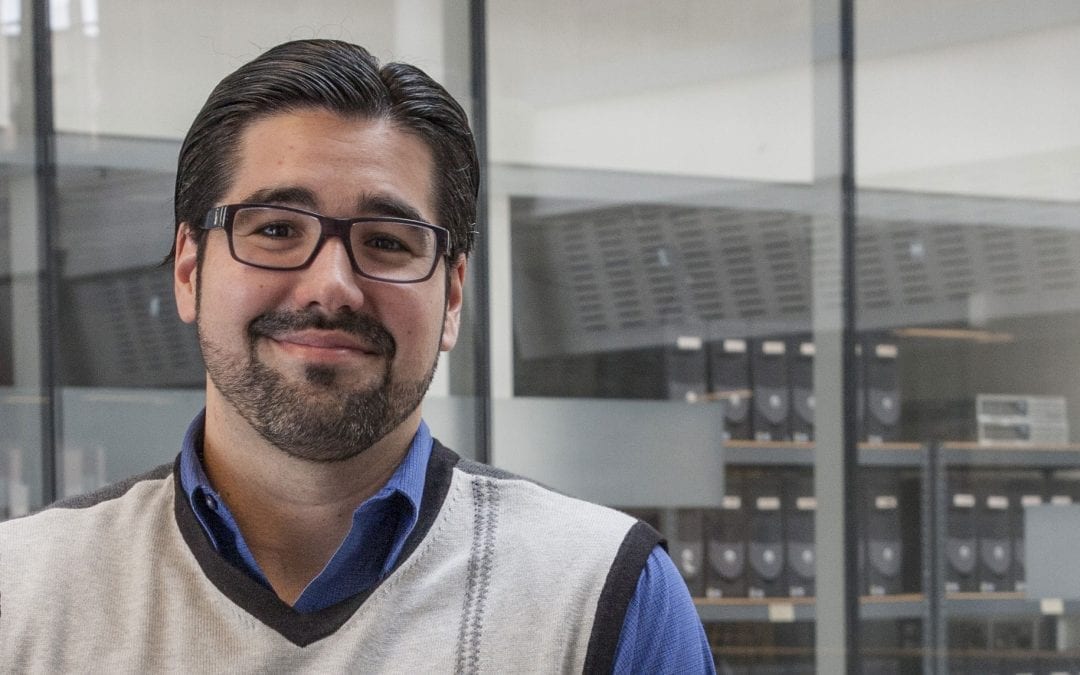Hector’s downtime is active. He spends much of his time playing with his three boys, a 7 year-old and 4 year-old twins. His interest in reading non-fiction has slowly morphed into a love of comic books shared with his sons. While his boys are growing up in lovely Ann Arbor, Hector recalls a growing up in a beach town next to the El Yunque rainforest in Puerto Rico, the only rainforest in the U.S. “I spent my childhood surfing,” he says.
Hector is passionate about increasing the recruitment and retention of underrepresented minorities in the engineering field. He explains, “At U-M, I have a good understanding of how recruitment and retention of underrepresented minorities works, and I’d like to develop a similar understanding of practices at other universities. This is a passion of mine and I want to improve the climate and opportunity for Latino graduate students in my field.”
He has been a visible and active presence at the College of Engineering, winning the 2013 Distinguished Leadership Award there. In 2012, as Co-director of the Society of Hispanic Professional Engineers – Graduate Community at U-M, he helped increase enrollment of Ph.D. underrepresented minorities by 23%. He says, “The society participates in conferences and is a sponsor of the national conference for the society which will be held in Detroit this year. We’re hosting a hack-a-thon at the conference to create an emphasis on Hispanics in computer science.”
A recent graduate, Hector’s field of research involves the modeling and simulation of advanced technologies such as quantum computing systems. Such devices are represented by so-called quantum circuits, which behave differently than conventional digital circuits, acting in accordance with quantum physics instead of classical physics. Using quantum circuits, he simulates how one would compute in this environment. He details, “I designed new data structures and algorithms that facilitate simulation of broader classes of quantum circuits that are beyond the capabilities of current state-of-the-art simulators. My technique is inherently parallel and thus can take advantage of highly-efficient distributed computing frameworks.”
At this point, he’s considering many career options while pursuing postdoctoral research at U-M through the summer. “I like teaching and have been doing it for a while in graduate school, as there was a dearth in computer science lecturers because of the high demand from students for classes in this field. Teaching is important to me, but research provides the opportunity for long-term payoffs as well,” he says.
He read about the Bouchet Honor Society in the graduate e-newsletter and colleagues in his department encouraged him to apply. Now a 2014 inductee into the Society, Hector serves as an example of scholarship, leadership, character, service and advocacy modeled by members of this esteemed society for students who have been traditionally underrepresented in the academy. He’s hoping the society provides a great network of like-minded scholars and an opportunity to establish connections to a wide variety of research fields.

